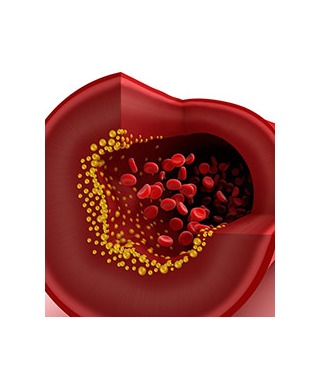What to Avoid to Promote a Healthy Heart
Causing millions of deaths worldwide annually, cardiovascular disease is the most prevalent health problem in the world. In fact, it is the number one cause of death in the United States.
What Is Cardiovascular Disease?
Cardiovascular disease can take many forms, ranging from high blood pressure to rheumatic heart disease. Coronary heart disease is the most common type of cardiovascular disease, causing many deaths every year in the U.S.
Cardiovascular Disease Risk Factors
Although cardiovascular disease remains the number one killer in the world, modern science has been able to do tremendous research in recent years, and a number of risk factors have been identified. The more risk factors one has, the more likely he or she will develop a cardiovascular disease. Major risk factors include:
- High blood pressure (hypertension)
- Systemic or "silent" inflammation
- Diabetes
- Obesity
- Heredity
- Smoking
- Physical inactivity
- Age
Some, but not all, of the major contributing factors can be treated, modified or changed.
Contributing Risk Factors
There are also a number of "contributing risk factors" that may also increase one's likelihood of developing a heart-related problem. These alone are not independently responsible for the condition, but having the following in your lifestyle in addition to one or more of the major risk factors can increase cardiovascular risk.
- Stress
- Alcohol
- Sex hormones (menopause)
- Birth control pills
Preventive Measures
Certain lifestyle changes can play a large role in helping one to avoid cardiovascular diseases. Preventive measures include:
Exercise
– You don’t need to be a workout warrior to obtain the health benefits of exercise. Simply exercising to maintain an elevated heart rate for 30 minutes a day can be incredibly beneficial to your body.
Eat a Healthier Diet
– Diet plays a huge role in cardiovascular disease, especially when a diet is high in processed foods and low in natural foods. A healthy diet consists of fresh foods that are low in sodium, saturated fats, trans fats, cholesterol and sugar, and high in vitamins, minerals and antioxidants.
Lose Weight
– Losing weight will help reduce one's risk of developing cardiovascular problems. By exercising more and eating a healthier diet, losing weight will come safely and naturally.
Quit Smoking and/or Alcohol
– Smoking and alcohol are two vices that can dramatically increase the number of free radicals being produced in the body. Quitting both will allow your body's antioxidants to start the healing process immediately.
Increase Antioxidant Intake
– Eating a healthy diet will naturally increase one's antioxidants, but even this is not always enough to combat the high levels of free radicals in the body. In order to obtain the best protection possible, consider incorporating Hawaiian Astaxanthin into your daily regimen.
Continue learning about cardiovascular health by reading the next article in our series, Cardiovascular Exercises.

